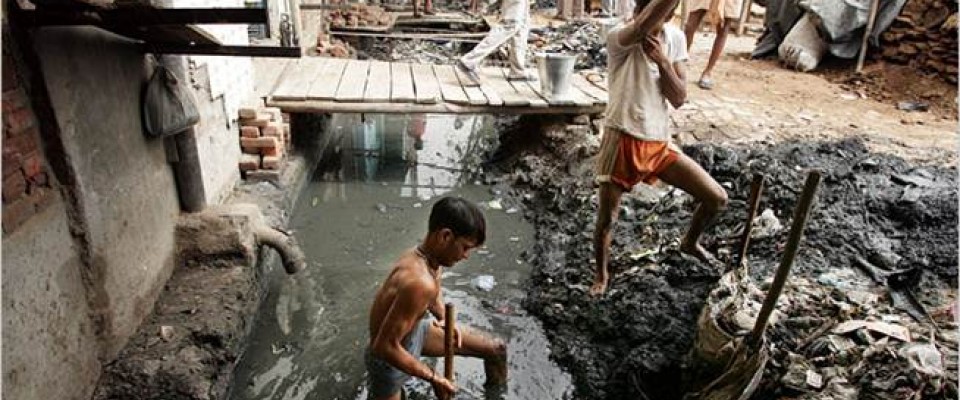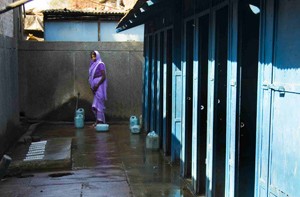- What We Do
- Agriculture and Food Security
- Democracy, Human Rights and Governance
- Economic Growth and Trade
- Education
- Ending Extreme Poverty
- Environment and Global Climate Change
- Gender Equality and Women's Empowerment
- Global Health
- Water and Sanitation
- Water and Development Strategy
- Advancing Water Supply, Sanitation and Hygiene
- Urban Sanitation
- Promoting Water Productivity and Efficiency
- Investing in Water and Natural Resources Management
- Enhancing Water and Disaster Risk Reduction
- Learning and Sharing in the Water Sector
- From The Field
- World Water Day
- Working in Crises and Conflict
- U.S. Global Development Lab
-

Today, thousands of children around the world will die from diarrheal disease caused by inadequate sanitation. Thousands more will die tomorrow. And yet globally, more people have access to a mobile phone than a toilet.
Sanitation has been called the urgent problem, and nowhere do we see this urgency more than the sprawling, rapidly expanding urban environments of the developing world. In the next three decades, 2.5 billion people will migrate into the world's urban areas, 90 percent of them in Africa and Asia. Rapid urbanization will pose development challenges unlike those the global community has faced in the past. This is why USAID, through its U.S. Global Development Lab, is making urban sanitation a new global priority.

Building on important work by our partners and USAID’s Water and Development Strategy, we will focus on engaging a broad community of solvers to find, test and scale innovative urban sanitation solutions. We will take a systems approach that considers the entire sanitation service chain—from demand to capture, emptying to transport, treatment to reuse and/or disposal—focusing on the nexus between government and commercial providers. We will work with partners to identify sustainable service delivery models that can be adopted by both the public and private sectors.
Current Opportunities
- We are currently seeking researchers and scientists interested in applying for USAID’s Partnerships for Enhanced Engagement in Research’s (PEER) special call for proposals on urban sanitation.
- U.S. graduate students may also be eligible for a Research and Innovation Fellowship on urban sanitation.
- Apply to USAID's open innovation fund - Development Innovation Ventures - with your ideas in the urban sanitation sector. Now accepting proposals for all sectors, including water, sanitation, and hygiene.
On the Urban Sanitation Frontlines: India, Ghana and Indonesia
The challenges posed by two, interrelated 21st century trends—poor sanitation and rapid urbanization—are best told by three African and Asian countries on the front lines of the global urban sanitation challenge.
Urban Sanitation in India
The world’s second most populous country has lifted hundreds of millions out of extreme poverty. But poor sanitation infrastructure and rapid urbanization make India an essential piece of the puzzle in the search for effective urban sanitation solutions. Insufficient sanitation coverage negatively affects India’s GDP by approximately 6.4 percent per year. Sanitation and clean water are the Government of India’s top development priority. In support of this effort, USAID will seek partners to collaborate on urban sanitation solutions in India in early 2015.
Urban Sanitation in Ghana
One of the strongest economies in Africa, Ghana demonstrates significant prospects for long-term economic growth. However, only 18-20 percent of the 10 million urban Ghanaians have access to improved sanitation facilities. Ghana is one of three West African countries in which USAID will support a new urban sanitation initiative, launching in November 2014.
Urban Sanitation in Indonesia
Indonesia’s hard-won status as a middle income country has not translated into urban sanitation gains. Half of the country’s urban residents have access to improved sanitation; fourteen percent practice open defecation. The third most populous country in Asia, 51 percent of Indonesians live in urban areas. USAID is collaborating with Indonesian partners to provide improved sanitation to 250,000 Indonesians.








Comment
Make a general inquiry or suggest an improvement.